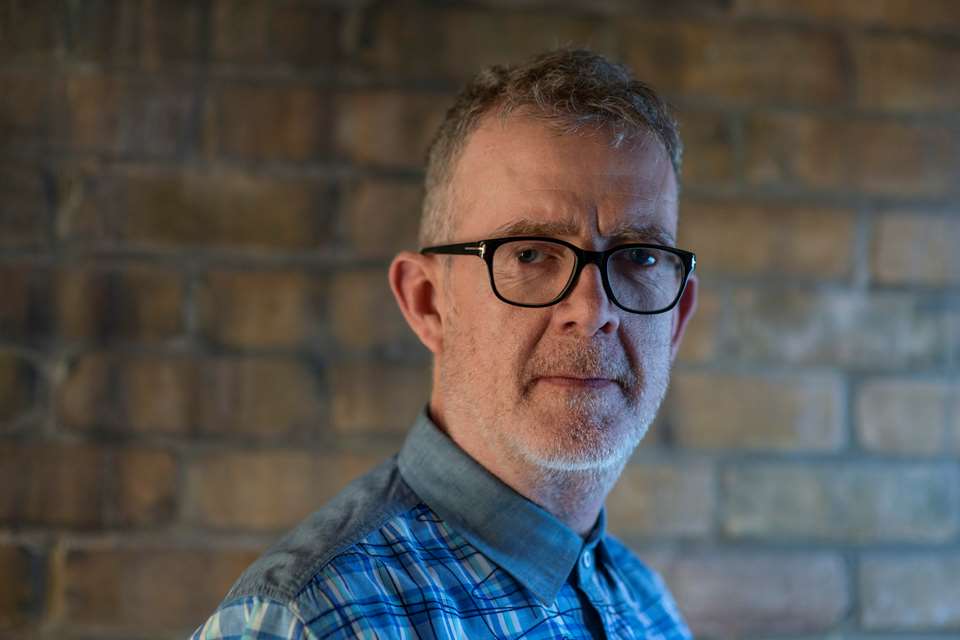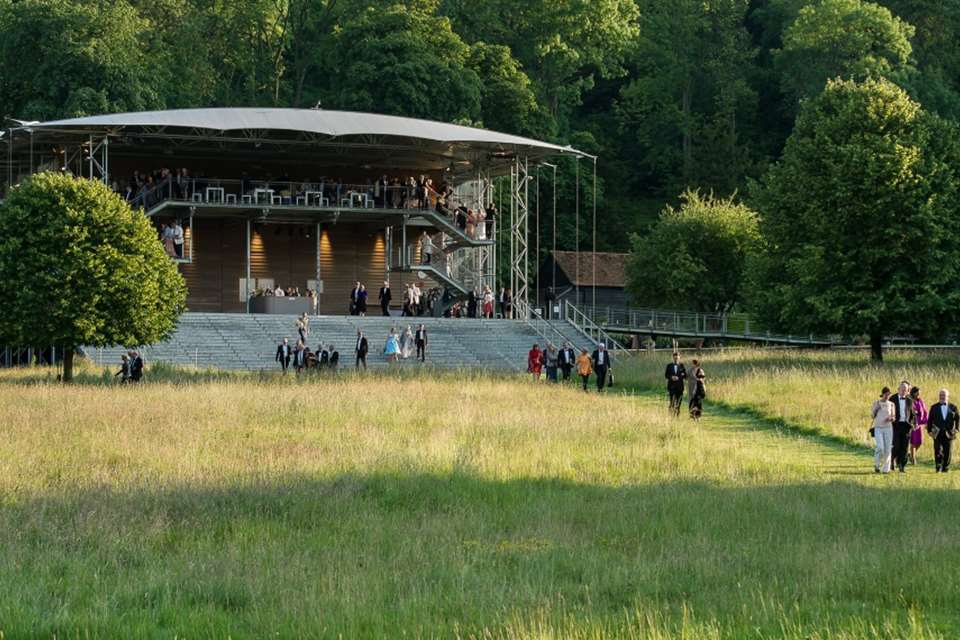'The audience wants to see themselves, they want to feel seen' | Jamie Barton interview
Hattie Butterworth
Tuesday, August 29, 2023
Mezzo Jamie Barton shares her connection to characters through trauma, bringing pride to the 2019 BBC Proms and the impact of living with ADHD
 Photo: Jamie Barton by Bree Ann Clowdus
Photo: Jamie Barton by Bree Ann Clowdus
Five minutes into my conversation with Jamie Barton and I have somehow forgotten that the open, effervescent woman I’m speaking to is one of the world’s most celebrated mezzo sopranos. Our conversation has moved jovially between homesickness for her cat, River, to how she finds being in London and her new safe-haven – the cat cafe near to her sub-let. ‘Kitties who are in a cat cafe are certainly a little touch-inundated, so they’re not exactly gonna want to cuddle with you. But it’s just nice to be around a little furry monster!’
Her open-heartedness is, equally, unsurprising. I’ve followed Barton’s social media for many years, often comforted, elated, amused and connected by the unapologetic world she shares with her audience. I almost sense I know her already.
‘She is such a key part of my happiness,’ says Barton, continuing cat-convo by telling me about River, her short-haired tabby cat who she has been away from for approaching two months in a year of work based largely around Europe. ‘I always say that home to me is comprised of three different things: the actual place that I live, my friends and family, and River.’
We then move from cats and I begin some gormless praise – I had been at the opening night of Adele Thomas’ staging of Verdi’s Il trovatore at the Royal Opera House Covent Garden, just a week before our conversation. Barton was singing the role of the Gypsy’s daughter, Azucena, alongside a cast of Ludovic Tézier, Marina Rebeka and Riccardo Massi. As she emerged on to the stage as the misunderstood, confused and deeply complex character, I sensed an energy of understanding between Barton and Azucena which went deeper than ‘good acting’.
‘I think actually out of the big Verdi girls, both vocally and psychologically, I really connect to her,’ Barton says. ‘Azucena is somebody who grapples with such massive amounts of PTSD [post-traumatic stress disorder] and it informs everything she does – one of the reasons I love working with Adele Thomas on this is because she really focuses on Azucena’s nuanced human connection.’
'I’ve actually really leaned into understanding that procrastination is not a moral failing – it is a part of the way my brain works'
I ask whether dealing with a character of Azucena’s emotional size is exhausting, especially when Barton appears to enter so fully into her experience: ‘Every time I do Azucena it gets easier,’ she reassures me. ‘And that is because I think, in a way, she helps me feel through and heal my own trauma – I’m really grateful to her for that. I certainly didn’t throw a baby into a fire, but I absolutely have had the experience of seeing something horrific and having to process it. I’ve had the experience of knowing the toll that takes on you in sleep, in wellness, and in so many ways. It’s an honour to get to tell a story that is that real to me. It does absolutely take some emotional fortitude, but I’ve never found a rehearsal situation that wasn’t supportive of that.’
Our conversation soon reaches Barton’s iconic UK appearances. The 2013 BBC Cardiff Singer of the World was a moment so many remember, followed by another big BBC gig – the Last Night of the Proms in 2019. In the footsteps of star singers performing the annual (and recently much-debated) Rule, Britannia! Barton made history wearing a dress in the bisexual flag colours of blue, lavender and pink, bringing out a giant pride flag in the final chorus in a hair-raising explosion of colour.
‘At the time we were in Trump’s America and I couldn’t bring the American flag. It was not a flag that I felt comfortable under anymore. So I thought, what flag do I feel comfortable under? What flag do I feel represents things that are my values and to me? That was a no brainer – it was the rainbow flag.
 An iconic performance – Barton wears a bisexual flaginspired dress to sing Rule, Britannia! at the Last Night of the Proms in 2019 | Photo: Chris Christodoulou
An iconic performance – Barton wears a bisexual flaginspired dress to sing Rule, Britannia! at the Last Night of the Proms in 2019 | Photo: Chris Christodoulou
‘I will never forget walking out for the first time, for the very first entrance. As I’m looking out across the insane chaos and party, I could see so many pride flags. There was one person who had a pride flag as big as mine, and another group had a bi flag. I was internally saying, “Hold it together, Barton”!
‘When it comes to Rule, Britannia! and bringing a swing of who I am and what I believe in, there was nothing else on earth that I could get behind more than the idea of love, acceptance and inclusion. I heard afterwards from people in the UK who told me that they had never felt seen in that particular tradition before. That representation came from me deciding to show up for myself. How powerful can that be?
Barton was raised in mountainous north-west Georgia with her younger brother and music-loving parents. Music study took place at Shorter University in her home town of Rome, followed by Indiana University. Then, in 2007, she won the Metropolitan Opera National Council Auditions for young singers. In 2013 Barton won both the Song Prize and the Main Prize at BBC Cardiff Singer of the World, leading to a full calendar of professional engagements.
But it was at this point, learning swathes of new repertoire, that Barton realised there was an element to her life that wasn’t quite in flow. ‘For years I was having a harder and harder time learning the music – at first I thought it was just me procrastinating. Or I thought I just needed a break. I’ve got the best management, and so every time I ran into a wall, I’d go to them and ask to make adjustments.’
‘I would go into hyper focus mode for a day on a role. But then I would get up the next day, sit down at the piano and try to go over what I had worked on the day before. But it was like I had never seen it.
‘I talked with my therapist, who’s not a prescribing therapist, but was in talk therapy with her – she suggested it might be an ADHD symptom. That’s when my journey with figuring it out really began. I started working with a prescribing RN [registered nurse] who I still am working with.’
‘I’m so excited to see a piece where the women are heroes. It’s a piece that will absolutely challenge people who are in the audience'
We laugh that ADHD has become a buzz-word, within an age of self-diagnosis on TikTok. But discussions around medication and its effectiveness for this condition hint at the seriousness of Barton’s experience: ‘Medication has been very helpful, but there are also things that are difficult with it. I very openly have struggled with eating disorders for much of my life, but [the drug] Adderall makes it really hard to hear your hunger cues. There’s also the issue of your dosage becoming a little obsolete.
‘But the flip side of all of that is that now I understand my brain better. The way it has manifested in my career has been kind of revolutionary at this point – I know that I need structure. I need scheduling to start learning things.’
For all her wariness about ADHD’s impact, she uses the experience to impart further wisdom: ‘I’ve actually really leaned into understanding that procrastination is not a moral failing – it is a part of the way my brain works. And if there are other things on my plate and learning a role doesn’t register for that day, then there’s probably a good reason for it.
‘I’m learning to accept my brain and ADHD. Learning what that means and how I do my work has been the largest part of managing it. It’s not so much the Adderall, although having meds to help control it for me is really important. Taking my own self judgment away from how my brain works – there are so many ways to get to where I need to be.’
A new learning space approaches with the next major project for Barton – the world premiere of composer Jake Heggie’s 10th opera Intelligence for Houston Grand Opera in the autumn. Based on a true story with a libretto by Gene Scheer, it takes the lives of two women in the American Civil War – unlikely spies whose remarkable story is still little-known. Barton lights up as I ask for an elevator pitch about the opera: ‘It is the story about how these two women helped gather intelligence to send to Lincoln’s people. Some of the intelligence they gathered was incremental in the North winning the war.
‘My character, Elizabeth Van Lew, was brought up in a pretty well-to-do house in Richmond, Virginia. Her father owned slaves, but that never sat well with her. After her parents passed away she took all of her inheritance and used it to purchase as many of her family’s slaves’ family members as she could, and then became really, really a key player in the underground railroad.’
Mary Jane Bowser is the other woman (played by Janai Brugger) – an African-American born into slavery in the Van Lew household. The opera follows her entrance back into slavery, working in the Confederate White House, and using her photographic memory to deliver intelligence. ‘She would be in the office in Jefferson Davis’ house dusting, pretending that she couldn’t read. But looking at these documents, memorising everything and sending that information back through me.’
Barton is full of awe for these women – those who in their day were using their connection and ability to make change. Barton also speaks of Heggie with such reverence, with whom she has a sustained a musical partnership. A notion of what success is or has been for Barton seems to come down to the stories and musical partnerships that bring her to life. ‘I’m so excited to see a piece where the women are heroes. It’s a piece that will absolutely challenge people who are in the audience. I think that’s something that Jake does really well – he knows how to tell a story that is human. It’s complicated – It’s not going to be happy, nor all sad, or all dramatic. There are going to be moments of levity.’
And to family, who Barton lovingly parts into those ‘biological’ and ‘chosen’, who have also had their arm twisted by Intelligence’s elevator pitch: ‘There are so few times in my career that I want to tell everybody I know that they need to come. But this is it. This is the one that I’m like, “Everybody come to this!”’
 Jamie Barton as Azucena in Adele Thomas's production of Il trovatore at the Royal Opera House | Photo: Camilla Greenwell
Jamie Barton as Azucena in Adele Thomas's production of Il trovatore at the Royal Opera House | Photo: Camilla Greenwell
Barton has used her platform continually to ask questions around body positivity and speak about the experiences of plus-size women and performers. In 2019 she made the decision to quit dieting, writing on her Twitter: ‘I have more to offer to this world than what could be quantified by a set of scales’. In the centenary year of soprano Maria Callas, I want to ask Barton about the life of this complex artist, related to her own struggles. Barton’s openness around eating disorders brings up questions for me about how life for singers has changed since Callas’ much-reported weight loss in the 1950s. What does she make of glorifying a ‘perfection’ around Callas?
‘Her glory wasn’t in her perfection,’ Barton asserts. ‘I think anybody who’s ever heard a recording of her can say her glory was in her guts and in her strength. To me, part of guts and strength is the struggle – it is the battle that you go through. I cannot imagine being a woman as internationally famous as she was at that point in history. We’re talking about the days of Judy Garland and Marilyn Monroe – two other examples of how women were told how their bodies should be, with their efforts getting to that becoming part of their demise.
‘The policing of women’s bodies is criminal. The fact that she attained such professional and personal success through it, and through her struggles with her body, I think is the glory. That is the true picture of strength.’
Generous in spirit, Barton approaches every challenge she faces in as open-hearted a means as possible. Adversity is transformed and embodied, raising the artform through authenticity. And why? ‘Because the audience wants to see themselves. They want to feel seen.’
Jamie Barton plays Elizabeth Van Lew in Jake Heggie's opera Intelligence, opening 20 October at Houston Grand Opera | www.houstongrandopera.org









